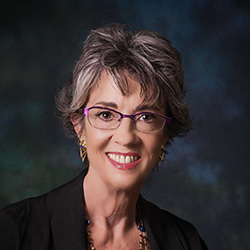How do we design and deliver the very best services and supports to older people living with dementia? Dropping “memory care” from our language would be a great first step.
The number of people with Alzheimer’s disease and other dementias is expected to double by 2030. But that’s no reason to start building more “memory care units.” Instead, it’s time to start thinking outside the box about how we can design and deliver the very best services and supports to help older people and their families cope with these devastating conditions. Dropping “memory care” from our language would be a great first step.
It’s Not Just About Memory
I agree wholeheartedly with Dr. Peter V. Rabins, co-author of The 36-Hour Day, when he suggests that “memory care” is far too narrow a label for the services and supports that are likely to help older adults and their families live and cope with dementia. During a recent leadership conference hosted by the Erickson School at the University of Maryland Baltimore County, Peter offered a surprisingly clear explanation of the extremely complicated set of conditions we call dementia. My most important takeaway was this: Dementia isn’t just about memory—or memory care.
Certainly, memory loss is a huge—and devastating—part of dementia. But dementia also dramatically affects how a person functions, and how that person perceives and relates to the world. For example, people with certain types of dementia exhibit a host of erratic or abusive behaviors that have very little to do with memory loss. Peter urged us to look at dementia as a large constellation of issues and challenges, which can vary from one individual to the next. Our care models must recognize that each of those issues and challenges requires a unique, individualized approach from both clinicians and frontline staff.
Putting a Broader View of Dementia into Practice
Dropping “memory care” from our language may seem like a small step. But it’s the best way to send a clear message to staff, residents, clients and families. That message says, “We get it.” We know our programs need to take the broadest possible view of dementia. We know we can’t use a one-size-fits-all approach to address all dementias or to serve all the individuals who struggle with these conditions.
Naturally, we have to complement our language change with dramatic changes in the way we deliver services and supports to people with dementia and their families. Here are my suggestions:
- Educate your program staff. Make sure the people who design and implement your dementia care program have a broad understanding of dementia and are familiar with interventions that have already been proven to work. This knowledge will help them take a person-centered and family-centered approach to dementia care that recognizes how different types of dementia affect different people in different ways.
- Train frontline workers. In-depth training about the causes, symptoms and effects of dementia can go a long way toward improving your therapeutic interventions and the work environment in which your frontline workers deliver those interventions. This training can give your staff greater empathy for the people with whom they work. That empathy can help dispel the fear, confusion and frustration that workers sometimes feel when they encounter difficult behaviors they don’t understand.
- Serve new populations. Don’t limit your outreach to people who can afford to live in your residential dementia care settings. Those residents represent only a fraction of the people who need your help. Find ways to serve older adults with modest incomes, who desperately need better access to services that, right now, they simply cannot afford. And don’t ignore the growing number of adults who will wage their battle with dementia from their own homes or the homes of relatives.
- Think about the caregivers. Caring for a relative with dementia is challenging work. That’s why it’s critical to center our dementia care initiatives on both people with dementia and their family members. Family members are desperate to understand what is happening to their relative. They want tools to help that relative live the best life possible. These overworked caregivers also need help taking care of themselves. Think about how you can provide caregivers with needed education and support. Position yourself as a community-based resource that caregivers can turn to when they need guidance or respite.
In my view, a willingness to make these changes represents our best chance to do the most good when older adults and their families find themselves most in need of our help.

Robyn I. Stone, DrPH, is senior vice president of research at LeadingAge, and co-director of the LeadingAge LTSS Center @UMass Boston. Her widely published work addresses long-term care policy and quality, chronic care for people with disabilities, the aging services workforce, affordable senior housing, and family caregiving.
